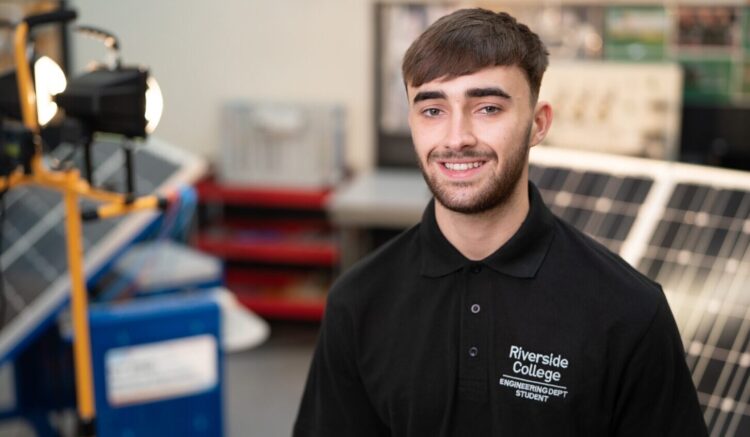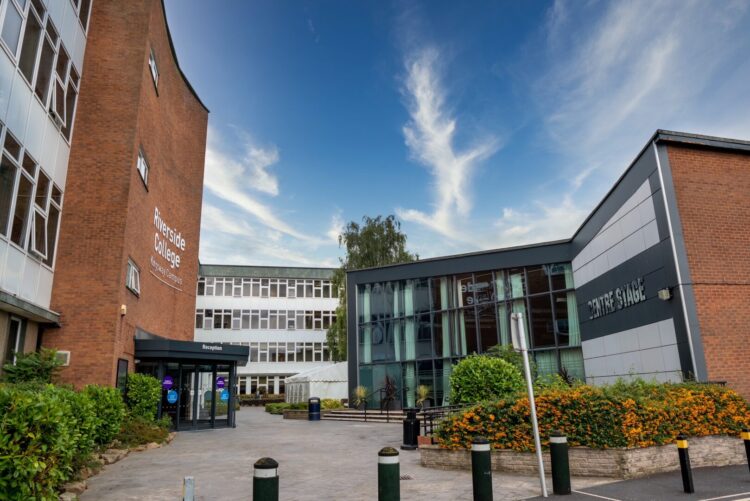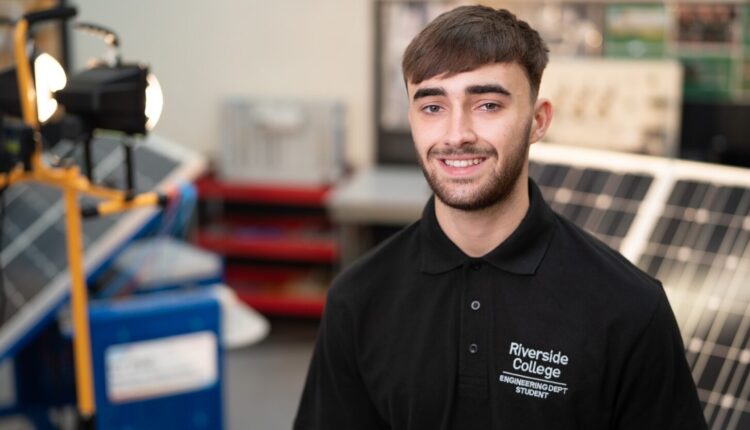Young people have been hit hard by the pandemic but the head of Riverside College in Liverpool city region says their resilience is remarkable and insists they will help our economy recover. Tony McDonough reports

Much has been said and written about the negative impact of the COVID-19 pandemic on young people in terms of their lives and education.
And it is correct to highlight that. However, there is another side to that story. What is also apparent, according to Thalia Bell, head of Riverside of Riverside College, Halton is the remarkable resilience shown by so many youngsters during what has been a once-in-a-generation crisis.
It offers much optimism for the future of the Liverpool city region economy. It is changing fast and is demanding ever-changing skills in advanced manufacturing, engineering, maritime, digital, health and social care and the green economy. Young people will need to be adaptable.
“We all saw how the pandemic created barriers and for young people it was no different,” explained. “However, we also saw here how well many students adapted and were creative in finding new ways of doing things.
Through their own resourcefulness and ingenuity they have found ways to support their families and the wider community. The resilience they showed was amazing and they have picked up new skills as a result.”
Riverside is based on two sites – in Widnes and Cronton. As the new academic year starts it is expected around 4,000 students will be enrolled on courses at both sites. They will be teenagers studying A Levels, BTECs or apprenticeships, and people of all ages choosing from a number of courses and apprenticeships from basic skills to degree level qualifications.
The college is committed to working with employers from multiple industry and business sectors across Liverpool city region, identifying skills gaps and anticipating how those requirements will change as the economy evolves.
Rated ‘outstanding’ by Ofsted in June 2020, Riverside College’s facilities include five state of the art workshops for Engineering which focus on everything from welding to green energy with the latest kit and technologies to meet the needs of the Advanced Manufacturing and Engineering sectors now and in the future.
The college also has five construction zones to meet the needs of the growing construction trade and house refurbishment sector in the Liverpool city region. A clinical practice ward and a laboratory for Health and Social Care, Nursing and Midwifery plus industry standard training kitchens, ‘Scholars’ training restaurant, a practice nursery, IT and computing suites, salons and a nail bar and a Learning Resource Centre.”
Thalia added: “We are investing £4m in a green technology building to provide courses to meet the future green agenda. This year we have new courses in electric car maintenance, solar, wind and green technologies to provide skills we know will be in high demand in the coming years. We aren’t just teaching people how they work and how to implement them but also how they can go out and fix them in the future.”
Head of Cronton Sixth Form College, Leeann Bellfield added: “There is a degree of guesswork that goes into imagining the kinds of skills that will be needed in five, 10 or 15 years’ time.
“But at the same time we have a huge amount of expertise here at the college. We are investing £6m in a health and social care building to meet a huge demand for skills and people in the health and social care sector. Many employers are relying on agency staff to fill gaps and are very keen to bring in more skilled people.
“Our heads of department have a lot of experience and inside knowledge of the industries that they are teaching about. We also frequently meet with industry and value their input changing our curriculum to meet the needs of employers now and in the future. At our last careers hub in June we looked at the maritime and logistics sector, a significant sector in the Liverpool City Region.
Like every other educational institution in the UK, Riverside found itself with an unprecedented challenge at the start of the pandemic in March 2020: how to ensure the continuity of education for all of its students.
Thalia said: “It was a challenge at first. Different students have different circumstances at home and we had to work to ensure every student had access to the equipment they needed such as laptops. Staff adapted quickly and were able to innovate when it came to online teaching.
“As with most areas of the city region some of our students come from challenging backgrounds and therefore during lockdown they were our utmost priority to maintain regular contact, in many cases, it is that contact that has kept them going through the past 18 months.
“We were able to create an online car that car maintenance students could practice online and experiments that science students could perform. With other courses, such as bricklaying, there is now substitute for that practical training. They have to get their hands on the bricks. We have arranged extra practical lessons to address that.


“Investing in technology has also opened up new opportunities. Our students have been able to hear from business leaders in other parts of the world and they have been able to see behind the scenes of new projects. That simply hadn’t been possible before.”
Leeann added: “We have also developed the technology to use in the performing arts. We used online streaming to put on a performance of Les Miserables. It is a great example of how hard the students themselves have worked to overcome the challenges.”
Riverside has forged strong relationships with major employers in Knowsley and the city region including Glen Dimplex, Unilever and Liverpool John Lennon Airport. It works to tailor its training to the needs of those businesses. It also offers support to many SMEs, providing tailored training packages.
The college’s focus on matching skills with the demands of the city region growth sectors has led to significant rises in the numbers of students. Since 2015, the number of manufacturing students has soared with more than 500 students studying in recent years. In construction the increase is from 33 to 280 and engineering from 267 to more than 400.
Encouraging more girls to take up STEM (science, technology, engineering and maths) subjects and consider careers in science and engineering is something Riversideand Cronton are very much committed to. With our purpose built facilities in the IDEA Centre we have created opportunities for students to study specialist engineering pathways which encourage young women into careers in this sector.
Leeann said: “Pre-pandemic it is something we would go into schools and talk about. It is something we want to raise aspirations on. In the IDEA Centre at Cronton,12 of our Engineering staff are female 15 engineering staff which provide positive role models to young women.”
Meeting the needs of the city region economy is at the heart of the college’s ethos, said Thalia. She explained: “There is a lot of investment going into the city region in areas such as the superport, logistics, engineering including advanced manufacturing and green energy. There is a lot for us to be excited about.
“And we have to offer the best training we can. We had an adult student here studying Advanced Manufacturing skills having worked in the industry for many years, and he told us he wanted to understand how the machinery worked, not just to be able to press the buttons.
“The course gave him a broader understanding and that is so important, it resulted in him being promoted at work to take on a higher level skilled role. We are teaching students to be able to adapt.
“We have to be able to meet the current and future needs of the city region employers and stay ahead of the game. Our careful and considered planning ensures that we provide courses to assist people to transform their lives.”

